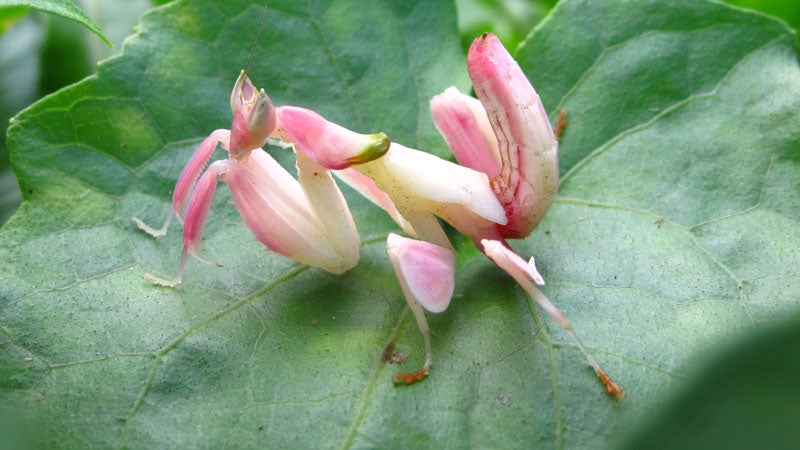With petal-like legs and attractive coloring, the orchid mantis uses its flower resemblance for hunting, researchers say, confirming years of speculation.
Native to the forests of Southeast Asia, the orchid mantis lures pollinators, such as butterflies and bees, to snatch them out of the air when they draw too near.
“They can attract even more pollinators than some flowers,” James O’Hanlon, evolutionary biologist at Macquarie University in Sydney, Australia, told LiveScience.
The orchid mantis is not the first predator to use mimicry in predation. For example, a species of bolas spider attracts male moths by simulating female moth sex pheromones. But the mantis is the first insect observed to take an aggressive approach to the same camouflaging method as used by the predator-evading stick insect.
“There are other animals that are known to camouflage amongst flowers and ambush prey items, but they do not actually attract the pollinators themselves,” says O’Hanlon, “the flowers they sit on are the attractive stimulus.”
This research confirms years of speculation—since the 1800s, when Alfred Russel Wallace, who conceived of evolution independently of Darwin, first suggested the orchid mantis had adapted this way.
The researchers overcame the obstacle of access by traveling to Malaysia and consulting the Orang Asli tribe for help locating the insect.
“We knew almost nothing about them and had to start from complete scratch,” says O’Hanlon, who mentions it is possible the orchid mantis also uses its disguise to avoid predatory birds and lizards.

